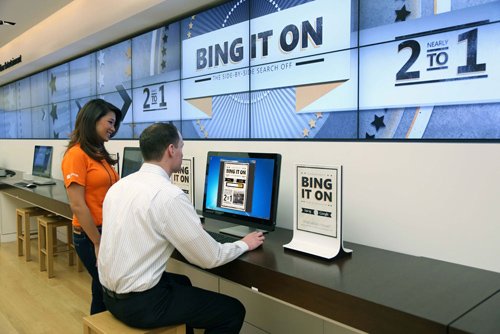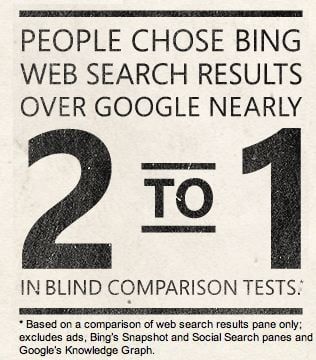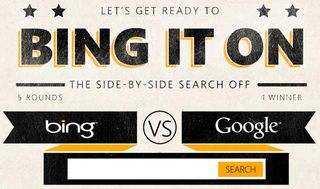Is Microsoft’s “Bing It On” campaign a sham? The evidence doesn't look good.

UPDATE: Please see our interview with Bing scientist, Matt Wallaert, here.
Recently, a law professor from Yale claimed that Microsoft’s famous “Bing It On” campaign is no more than a collection of lies. Ian Ayres, stated in Freakonomics that the company’s Bing ads are misleading and deceptive. To prove his point, Ayres set out on a “Bing It On” challenge using Amazon’s Mechanical Turk marketplace.
Amazon’s Mechanical Turk website allows anyone to offload tasks to a marketplace where anyone can work from home and get paid to fulfill those tasks. In this specific instance, Ayres recruited 1,000 people to take the “Bing It On” Challenge; his results, were quiet startling.
“We found that, to the contrary of Microsoft’s claim, 53 percent of subjects preferred Google and 41 percent Bing (6 percent of the results were ties). This is not even close to the advertised claim that people prefer Bing ‘nearly two-to-one’.”

The results were so far off from what Microsoft had claimed, that Ayres (let’s remember he has a PhD in law) stated that Google could file a deceptive advertising suit against Microsoft.
Today, Microsoft responded to the study with words from behavioral psychologist at Bing, Matt Wallaert. Microsoft refused to release a collection of their data from their own studying citing “reasons of science and privacy.”
Wallaert stated that the results from the original “Bing It On” challenge aren’t based on the claims of “a wildly uncontrolled website, because that would also be incredibly unethical (and entirely unscientific).”
The problem is that Microsoft never attempts to answer exactly why Bing was trumped so badly. Even if the environment was less controlled, results would not expect to be so widely different.
Get the Windows Central Newsletter
All the latest news, reviews, and guides for Windows and Xbox diehards.

Ayres stated that Microsoft is most likely choosing queries for their users that they feel will deliver better experiences on Bing. Wallaert fought back and stated Microsoft collected the top queries from popular search terms that they found in Google’s 2012 Zeitgeist reporting.
According to reports from NetMarketShare, Bing’s market share on Desktop devices are up to 5.70% this month, that is a far way behind Google’s market share of 70.53%. That being said, Google had suffered a 13% desktop market share drop in July of 2013.
It is no secret that Microsoft is struggling to fight itself to the top, but the question is – would Microsoft lie to get ahead? As of now, Microsoft simply has excuses and is refusing to back up their claims with hard data and evidence.
I myself am a Bing user and love it, but even I am questioning the legitimacy of the company’s “2 to 1” claims. What do you think – is Microsoft telling the truth or playing a few lies to get ahead and get noticed?
Bonus Question: Have you taken the “Bing It On” challenge? What were your results and did they contradict what search engine you currently use on a day to day basis?
Sources: Freakonomics and Bing; via The Verge, NetMarketShare
